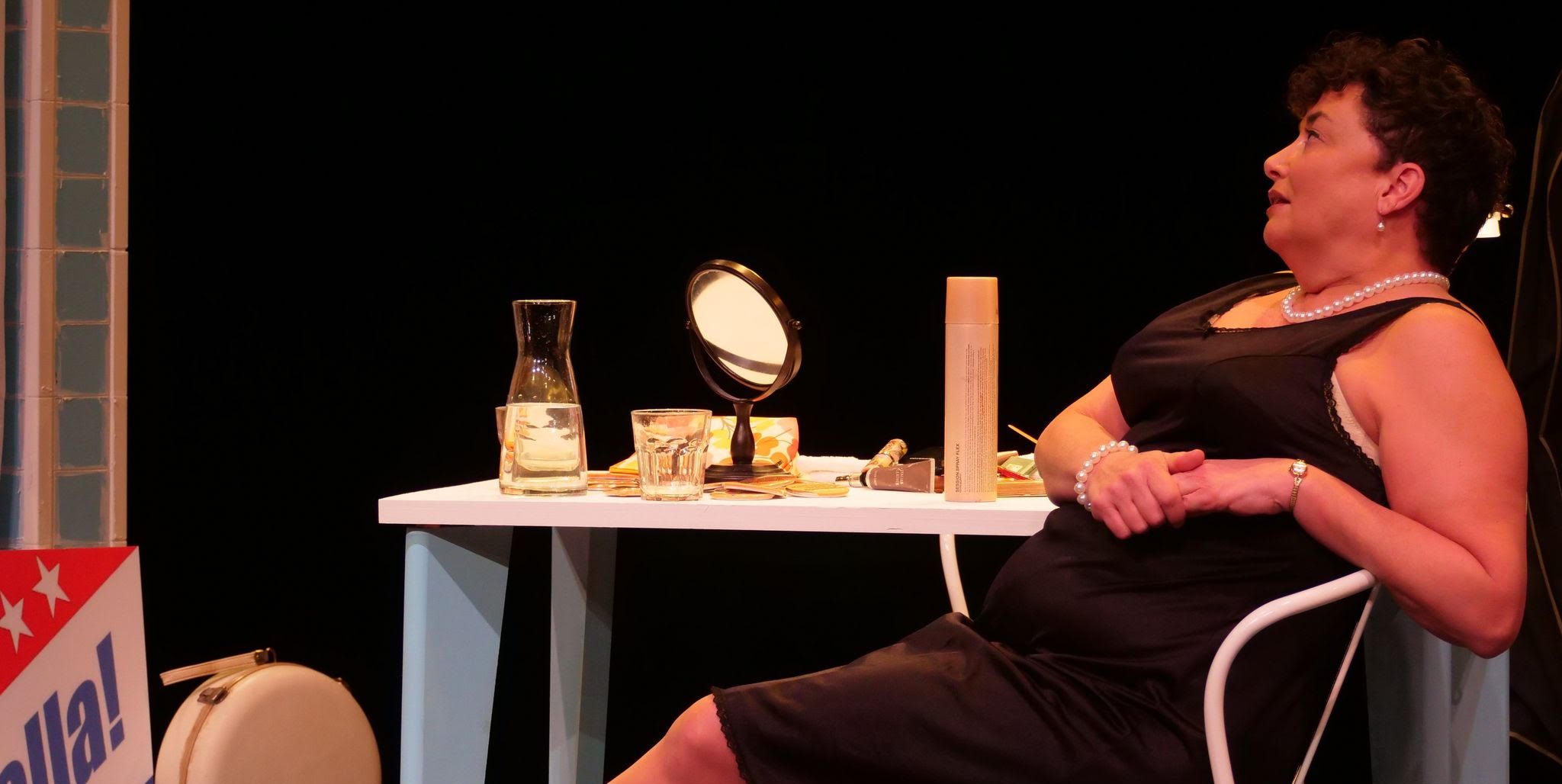SALT LAKE CITY — Bella Bella is a one-act, one-woman show, created by Harvey Fierstein, legend of stage and screen, about political legend, Bella Abzug. The action is set in 1976 in a New York City hotel bathroom where Abzug awaits the outcome of her bid to become New York’s first female senator. Breaking the fourth-wall, Bella, played with humor and aplomb by Tamara Howell, confides a rough sketch of her personal history and the lessons she has picked up during her life as progressive lawyer, politician, Jew, wife and mother. Abzug’s story is truly remarkable, and Howell’s passion and admiration come through in her portrayal of a very human woman.

It is notable that Harvey Fierstein both wrote and originated the role of Bella in the original 2019 off-Broadway production. Having a man play Bella, particularly one so well known for drag portrayals as Fierstein, strikes me as an odd choice to represent a woman who fought all her life to overturn the male-dominated systems of power that govern our nation. In her life, Bella reminds America, over and over, she had to fight against being either hypersexualized and degendered for political purposes. Howell’s portrayal of Bella’s struggle to be fully seen is both tender and generous.
The action is well staged on Allen Smith‘s simple set design. Director Fran Pruyn has made good use of the functional space. Bella freshens her makeup, undresses and dresses, and occasionally chats with audience members and those outside the bathroom door. A standalone tile sink makes an excellent speaker’s lectern, and the toilet becomes her confessional booth. As the night wears on and the results of the race tighten, Bella’s anxiety grows the space seems to close in around her. She stalks back and forth, seeking a way out of a world too small for her ambitions.

I can see the attraction to the script for PYGmalion as a theatre company committedlitt to exploring the lives and experiences of women. The script is as unabashed in its vision for both what is wrong with the world and and the vision that women must awake to their power to shape a better future. The script has humor, love, and an unapologetic pride in its ideals. It is relevant in its critiques of current, and sadly unchanged, political culture. Bella’s dream of a female president is still out of reach nearly 50 years later.
However, its self-assurance is also where the play falls flat. There is a lack of tension in Bella’s passion. There is no one on stage to challenge Abzug’s thinking or to confront her with her failings. One of the biggest laughs of the night comes when when Abzug shouts to the audience that she wishes the world could find peace by just agreeing that she is always right! While certainly relatable, this moment also captures the flaw of second-wave feminism. Surely, there were many wrong to be righted in the advancement of women’s liberation, and Abzug was at the forefront of it all. She passed legislation to get women their own credit cards, while also promoting racial equity and support for the gay and lesbian communities—at least that’s how she would like people to remember her. But, if given a moment to join her in the bathroom, would Abzug’s friend and contemporary Shirley Chisholm, the first Black congresswoman and presidential candidate, have been quite so congratulatory? What would her daughters and husband, whose lives were surely impacted for years by her commitment to her ideals have to say about her presence or absence from their lives? Despite her chumminess with the audience, Abzug in the bathroom gives viewers very little in the way of true vulnerability. She rails against systems, corrupt men, political enemies, and the media, even in a bathroom, spends no time looking at herself in a mirror to take a measure of her own weakness or blind-spots.
The audience seemed very appreciative of the production, and indeed I can find no fault with its execution. I applaud Howell for her excellent performance, but at the same time, I must admit that after 85 minutes of pontification, I left the the bathroom relieved and a bit weary, rather than inspired.
[box]The Pygmalion Theatre Company production of Bella Bella plays Thursdays through Saturdays at 7:30 PM and Sundays at 2 PM through February 26, with an extra closing performance at 7:30 PM on February 26 in the Leona Wagner Black Box Theater in the Rose Wagner Performing Arts Center (138 West 300 South, Salt Lake City). Tickets are $15-22.50. For more information, visit pygmalionproductions.org.[/box]

